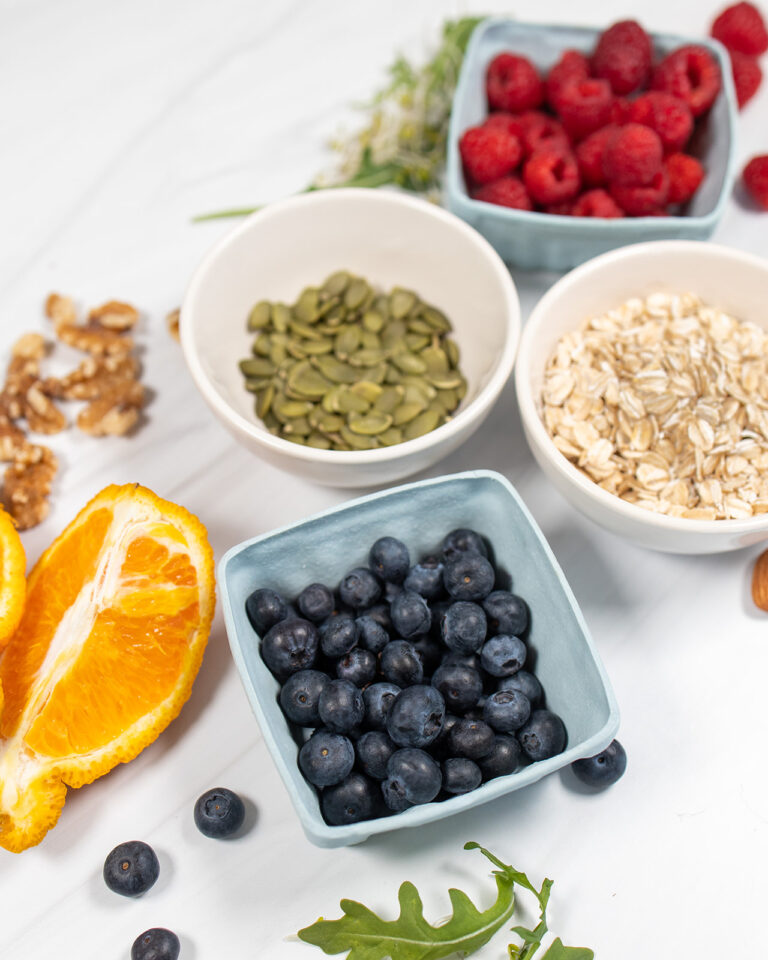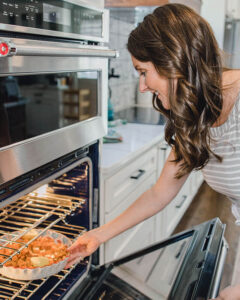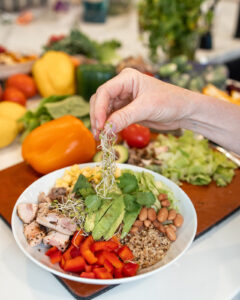This post contains affiliate links which means that if you make a purchase, I will make a small commission at no cost to you. Thank you for supporting my work!
Gallbladder health often flies under the radar when we think about digestion, but stick with me, this matters even if you’ve never given it a second thought. When your gallbladder and the bile it releases aren’t working right, every meal can feel like a struggle, especially those delicious healthy fats you’re trying to include for better energy and hormone balance.
Your gallbladder and especially BILE are the absolute MVP’s of digestion.
Why Sticky Poop Signals Gallbladder Trouble
Sticky poop and those sticky, hard-to-wipe stools is often your body’s red flag that fat digestion isn’t happening properly. Bile produced in your liver and stored in the gallbladder is the emulsion agent that breaks fats into absorbable pieces. When bile release falters, fats cling to the gut lining and emerge as sticky poop, potentially leading to nutrient gaps in vitamins A, D, E and K, hormone disruptions and blood sugar spikes.
The Gallbladder’s Role in Preventing Sticky Poop
Your gallbladder pumps bile into the small intestine every time you eat fats. Up to 20 percent of Americans develop gallstones during their life, and gallbladder removal is the most common elective surgery worldwide. Gallstones form when cholesterol overwhelms bile salts, leaving crystals that grow into stones. Without a responsive gallbladder, bile flow weakens and sticky poop becomes a recurring problem.
Signs That Sticky Poop May Stem from Gallbladder Dysfunction
Sticky Poop After Fatty Meals
If your stool sticks to the bowl or toilet paper after avocado toast or a drizzle of olive oil, that’s your gallbladder waving a red flag. Inadequate bile means fats aren’t emulsified, so they pass through intact and cling to surfaces. You might also notice oily streaks in the toilet, loose or greasy stools that float, and fish-oil burps which can all be reminders that fat isn’t being broken down properly.
Silent Clues of Gallbladder Stress
Gallbladder dysfunction doesn’t always announce itself loudly. Pay attention to chronic upper back or right shoulder pain (referred discomfort from the gallbladder region), unrelenting indigestion even after small meals, or a persistent feeling of fullness. You may experience bloating within minutes of eating, nausea after high-fat foods, or sudden swings in energy as fat malabsorption affects blood sugar balance.
When to Investigate Further
- Test your timing: Do symptoms flare specifically after meals with moderate to high fat? Keep a meal-symptom journal for a week.
- Notice non-digestive hints: Unexplained skin breakouts, vitamin deficiencies (A, D, E or K), or erratic cholesterol levels can all trace back to bile scarcity.
- Track persistent fatigue: If energy crashes follow meals that should be nourishing, low nutrient uptake from fats could be the culprit.
These signs: sticky poop paired with subtler clues, point to a gallbladder that needs support. Before diving into complex gut protocols, start by listening to these signals and consider simple strategies to nudge bile flow back on track since bile flow is “top of the chain” when it comes to digestion and needs to be onboard before addressing any imbalances in gut bacteria.
Strategies to Stop Sticky Poop by Supporting Your Gallbladder
Meal-Time Hacks for Better Bile Flow
- Chew each bite thoroughly and pause to savor flavors, which kicks off salivation and signals stomach acid release.
- Take a 5–10 minute walk before meals to stimulate gallbladder contraction and prime bile flow.
- Practice mindful pauses between bites, allowing your digestive system to catch up and preventing sticky poop.
- Try digestive bitters like these ones from Earthly prior to meals (and in between if needed for bloat/discomfort relief)
Harness Bitter Flavors
- Bitter compounds naturally wake up bile release
- Include bitter foods in your meals: dandelion greens, arugula or beet greens to provide a constant gentle stimulus for bile flow
Support Your Liver for Smoother Bile
- Sip a daily cup of milk thistle tea to help the liver produce and regulate bile consistency.
- Sauté dandelion greens or beet greens in a healthy oil to supply nutrients that clear toxins and support bile synthesis.
Boost Bile Production with Nutrients
- Add Vitamin C–rich foods or a supplement to your morning routine to ramp up bile acid production.
- Stir fresh ginger or turmeric into soups, smoothies or teas, since both herbs promote gallbladder contractions and ease bile flow.
Targeted Supplements to Prevent Sticky Poop
- Support overall digestive enzyme activity by combining ox bile with a broad-spectrum digestive enzyme formula (like this one from Gut Personal: use code DRHEATHER for a discount)
- If your gallbladder is sluggish or removed, ox bile capsules can replace missing bile salts and aid fat digestion (always check with your provider first)
- Consider a high-quality bile acid supplement with taurine to enhance fat emulsification (always check with your provider first)
The Upside of Clear, Non-Sticky Stools
When your gallbladder is working like it should, sticky poop becomes a distant memory and everything else clicks into place. You start soaking up fat-soluble nutrients (goodbye Vitamin D deficiency!) and your energy feels steady instead of swinging wildly. Your hormones settle down, your gut bugs stay balanced, and SIBO doesn’t get the chance to crash the party. Instead of treating sticky poop as just gross, see it as your body asking for gallbladder support. Pour yourself a shot of bitters before meals, really chew each bite and show your liver some love. Do that consistently and you’ll not only clear up your stools, you’ll power up digestion, lock in nutrients and keep unwanted bacterial overgrowth at bay.
This blog is for educational purposes and isn’t medical advice. Consult a healthcare provider before making changes.








